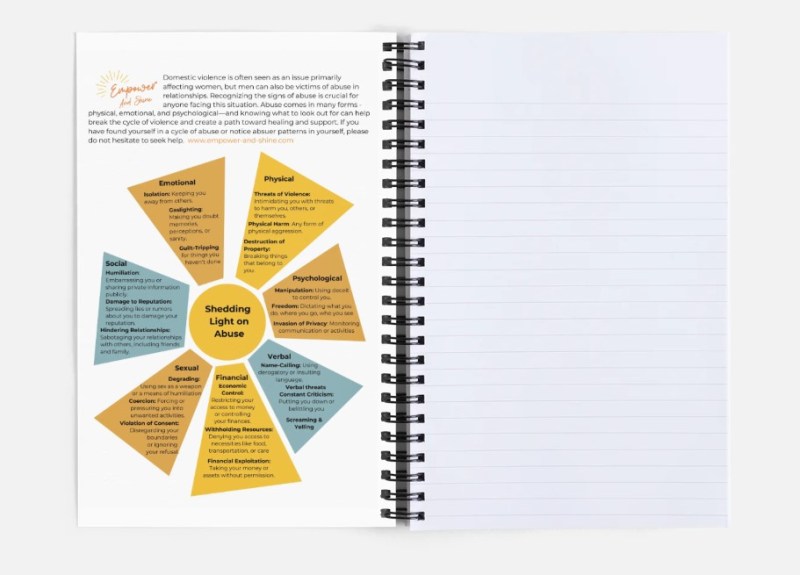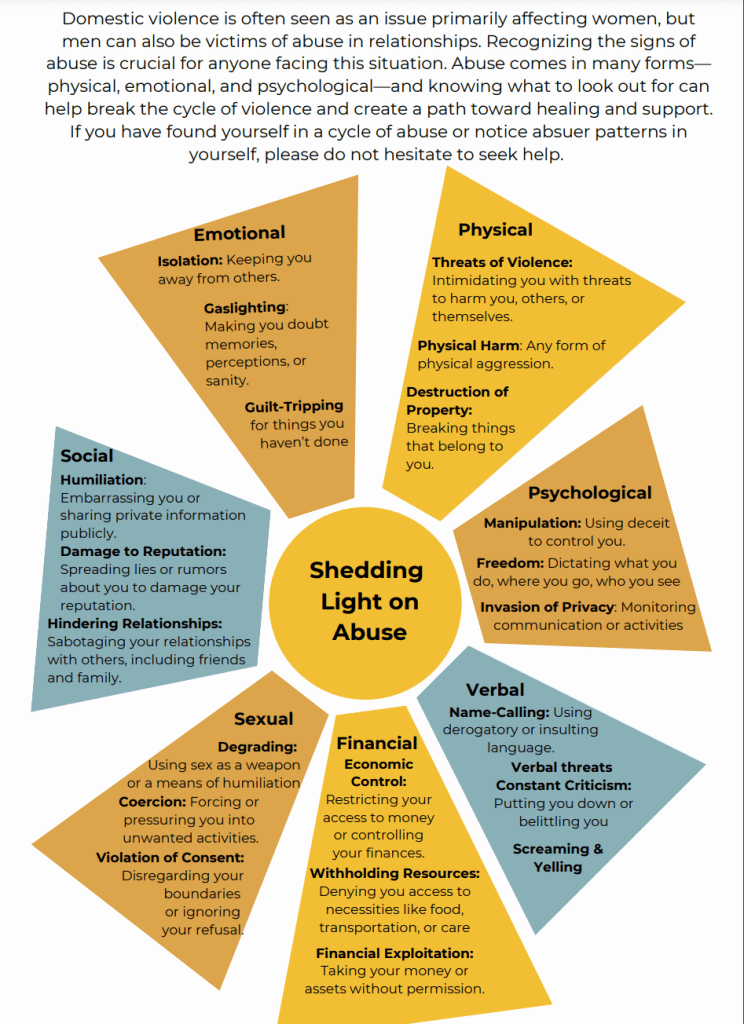Shedding Light on Abuse Against Men: Breaking the Silence and Promoting Healing
- Amanda Fenker
- Oct 21, 2024
- 2 min read
Updated: Mar 25, 2025

When we talk about domestic abuse, the conversation often centers around women as victims, which is undeniably crucial. However, we’ve come to realize the importance of recognizing that men, too, can be victims of abuse in their relationships. In fact, the silence around male victims of abuse can be deafening, leaving many men feeling isolated, unsupported, and ashamed to speak out. This silence is one of the reasons why we’ve created a specialized journal, designed to help men navigate and heal from such experiences.
It first became an important part of our mission to shed light on different types of abuse, that power and control don’t always come in physical or sexual ways. That words and manipulation can also be abuse. Not long into our journey, we realized how much these things also affect men, the difference being that they don’t have others speaking out for them. They are often unaware of being in abusive situations simply because no one really talks about abuse affecting men.

With domestic abuse awareness month already halfway over we felt it was past time to shift the Empower & Shine focus to be more inclusive towards all and recognize that abuse is everywhere and something we can all work together on addressing.
Types of abuse can come in so many different ways. While some abusers may be true narcissists, there also are many scenarios where abuse is accidental. If you recognize any of these trouble areas in a relationship it is worth assessing if you are able to fix the abuse cycle. There are so many support groups for both men and women who will gladly assist you if you are in an abusive scenario. New Life Center, in Arizona, is one of our wonderful partners and an excellent resource. You can learn more about New Life Center in our previous post or on their website
Emotional:
Isolation: Keeping you away from friends, family, or activities.
Gaslighting: Making you doubt your memories, perceptions, or sanity.
Guilt-Tripping: Making you feel guilty for things you haven’t done.
Physical:
Threats of Violence: Intimidating you with threats to harm you, others, or themselves.
Physical Harm: Any form of hitting, slapping, or other physical aggression.
Destruction of Property: Breaking things that belong to you as a form of intimidation.
Psychological:
Manipulation: Using deceit or manipulation to control your behavior.
Control of Freedom: Dictating what you can do, where you can go, or who you can see.
Invasion of Privacy: Monitoring your movements, communications, or online activities.
Verbal:
Name-Calling: Using derogatory or insulting language.
Threatening Speech: Verbal threats or statements meant to instill fear.
Constant Criticism: Putting you down or belittling your achievements or efforts.
Financial:
Economic Control: Restricting your access to money or controlling your finances.
Withholding Resources: Denying you access to necessities like food, transportation, or healthcare.
Financial Exploitation: Taking your money or assets without permission.
Sexual:
Coercion: Forcing or pressuring you into unwanted sexual activities.
Degrading Treatment: Using sex as a weapon or a means of humiliation.
Violation of Consent: Disregarding your boundaries or ignoring your refusal.
Social:
Public Humiliation: Embarrassing you in front of others or sharing private information publicly.
Damage to Reputation: Spreading lies or rumors about you to damage your reputation.
Undermining Relationships: Sabotaging your relationships with others, including friends and family.

.png)




Comments